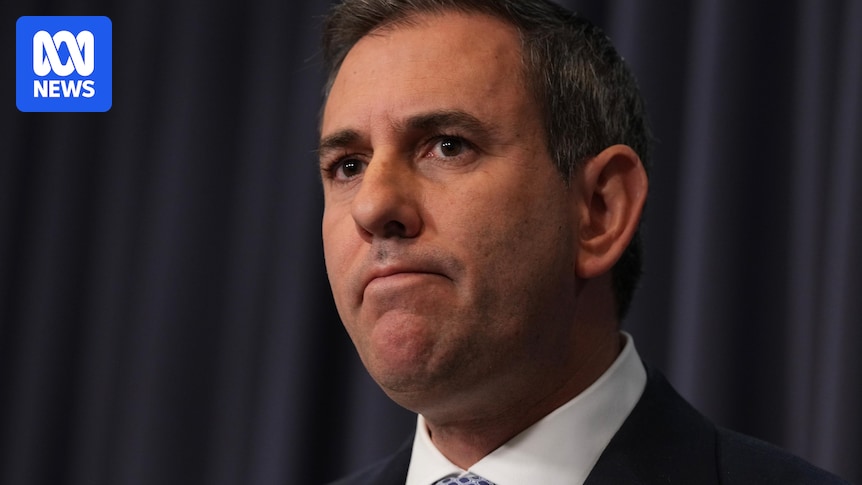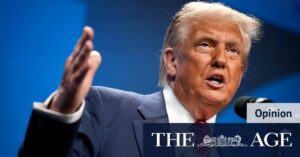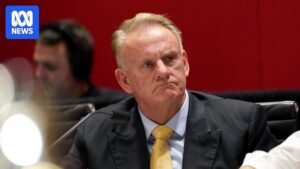
“Tax should be raised as part of broader tax reform.” This is the kind of headline that typically has treasurers ducking and weaving. However, this time, the accidental release of confidential parts of the Treasury’s Incoming Government Brief has ignited a debate that Treasurer Jim Chalmers seems to embrace rather than evade.
The opposition, still reeling from its recent electoral defeat, seized the opportunity to criticize. “What Mr Albanese needs to explain to the Australian people is what those higher taxes are,” Liberal leader Sussan Ley declared. Yet, confronted with the leak, Chalmers remained unfazed. “I’m pretty relaxed about it, to be honest,” he responded, choosing to own the leaked advice rather than distance himself from it.
Chalmers Embraces the Leak
Chalmers’s approach is a stark contrast to the usual political maneuvering. “We have made it clear that we need to build on the progress we’ve made in repairing the budget so that we can make the budget even more sustainable,” he told reporters. This statement aligns with his previous remarks at the National Press Club, where he expressed a willingness to tackle tough issues like tax reform.
The timing of the leak is significant, with the Economic Reform Roundtable just a month away. Economist Nicki Hutley suggests that the leak might even be advantageous for Chalmers. “It helps to promote the conversation ahead of what is a very important round table,” she noted. “And the more those issues, particularly challenging ones like tax reform, are aired prior to the round table, the better it is.”
Insights into Treasury’s Tax Reform Views
While the leak didn’t reveal much that wasn’t already suspected, it confirmed that Treasury advocates for increased revenue and reduced spending. Notably, it suggests that tax increases should not target workers or businesses, which are already heavily burdened. Instead, the focus may shift to those holding wealth, through superannuation, trusts, housing, or consumption.
The Commonwealth Bank of Australia (CBA) has already made its stance clear in a submission to the government’s Productivity Commission. “We do not believe that lowering the company tax rate should be a priority, provided there is no change to Australia’s imputation credit regime,” the CBA stated. This position diverges from many business lobby groups, indicating a complex landscape for tax reform.
Superannuation and Indirect Tax Reform
Superannuation remains a contentious area for reform. The Albanese government’s proposal to increase taxes on income from balances above $3 million is just a starting point. The CBA has proposed a more radical approach, suggesting a cap on superannuation balances to encourage aspiration while reducing dependence on state support in retirement.
“Uncapped superannuation concessions appear to be unsustainable,” the Commonwealth Bank noted. “We would support a superannuation cap, set at a level that encourages aspiration, and set well above the level where there is dependence on the state for support in retirement.”
Such a cap could see significant changes in how wealth is managed and taxed, potentially shifting some savings back into the banking system.
Broader Tax Reform: GST and Land Taxes
Treasury’s call for “reforming the indirect tax system” suggests changes to the GST or the introduction of land taxes. Raising the GST rate or broadening its base could be controversial but might also streamline tax compliance and eliminate inefficient state taxes. Pradeep Philip from Deloitte Access Economics argues that comprehensive reform, rather than piecemeal changes, is essential for economic growth.
“We know that while the GST is a highly regressive tax, it is also an incredibly efficient tax,” Philip stated. “And if reforming the GST could see us get rid of inefficient taxes, particularly at the state and territory level, then that could be a really good boost for the Australian economy.”
Land tax, often seen as an economist’s ideal, could also be on the table. Despite its potential benefits, it remains politically sensitive. Chalmers’s willingness to test the country’s reform appetite suggests that even contentious issues like land tax might be considered.
As the debate unfolds, the upcoming Economic Reform Roundtable will likely be a critical juncture for these discussions. Whether Chalmers can navigate the political and economic complexities of tax reform remains to be seen, but the conversation is now undeniably in the public domain.





